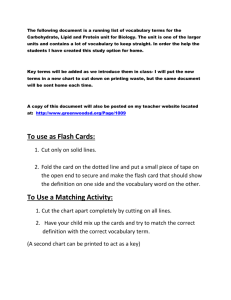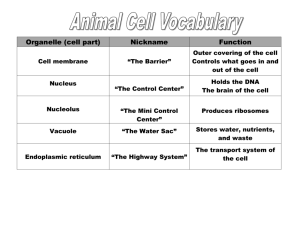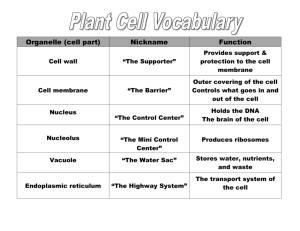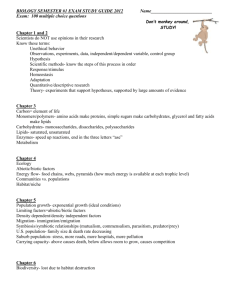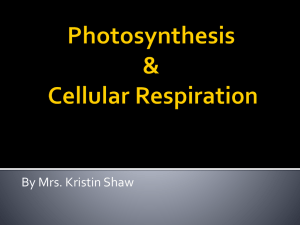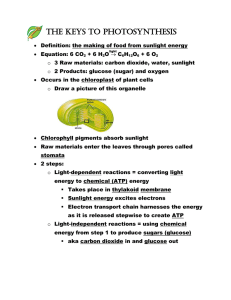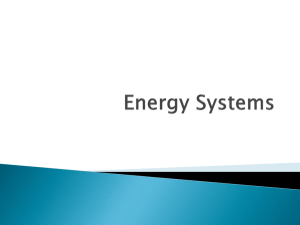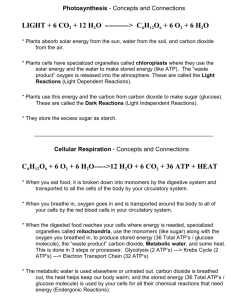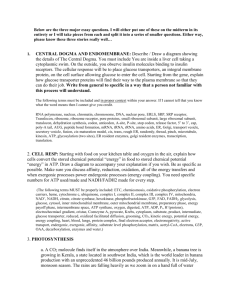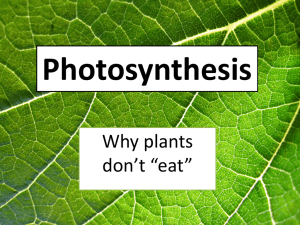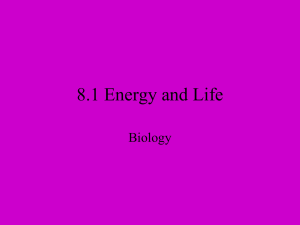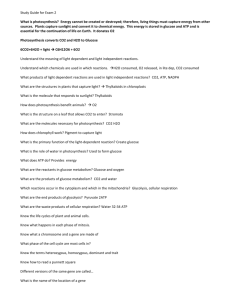Cell Respiration and Fermentation Vocabulary Study Option
advertisement
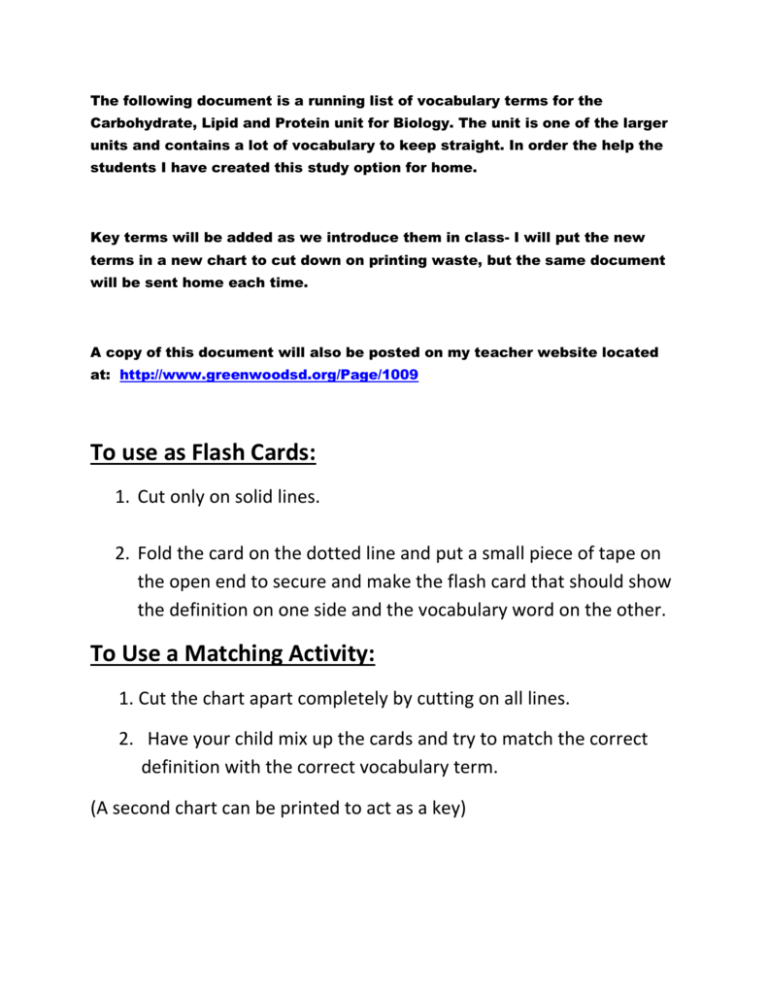
The following document is a running list of vocabulary terms for the Carbohydrate, Lipid and Protein unit for Biology. The unit is one of the larger units and contains a lot of vocabulary to keep straight. In order the help the students I have created this study option for home. Key terms will be added as we introduce them in class- I will put the new terms in a new chart to cut down on printing waste, but the same document will be sent home each time. A copy of this document will also be posted on my teacher website located at: http://www.greenwoodsd.org/Page/1009 To use as Flash Cards: 1. Cut only on solid lines. 2. Fold the card on the dotted line and put a small piece of tape on the open end to secure and make the flash card that should show the definition on one side and the vocabulary word on the other. To Use a Matching Activity: 1. Cut the chart apart completely by cutting on all lines. 2. Have your child mix up the cards and try to match the correct definition with the correct vocabulary term. (A second chart can be printed to act as a key) Photosynthesis Process where plants use sunlight, water, and carbon dioxide to produce glucose and oxygen in the chloroplast; process used by autotrophs to create glucose Cell Respiration Process in the mitochondria that “burns”/breaks down glucose (stored energy) and produces ATP; used by ALL organisms to burn stored energy in food molecules generating usable energy (ATP) Exergonic Reaction where energy is released to enable cells to do work Endergonic Reactions where energy must be taken in for it to occur, products have more energy than reactants Glucose Primary “fuel” for ALL cells, stored energy that is released to enable cells to make ATP Atp Cell’s “usable” energy; charged battery of the cell Aerobic Requires oxygen Anaerobic Does not require oxygen Autotroph “self feeder”; makes food through photosynthesis Heterotroph “Different feeder”; eat/consume other organisms for food adp A lower energy molecule that can be converted into ATP by adding a phosphate; uncharged battery mitochondria Organelle where most of cell respiration occurs chloroplast Organelle where photosynthesis occurs ATP Synthase Enzyme that combines ADP and P to make ATP fermentation The process where cells break down glucose (through glycolisis) in the absence oxygen (anaerobic) H+ ions Flow through and active ATP synthase electron Negatively charged particle that is passed along the Electron Transport Chain
